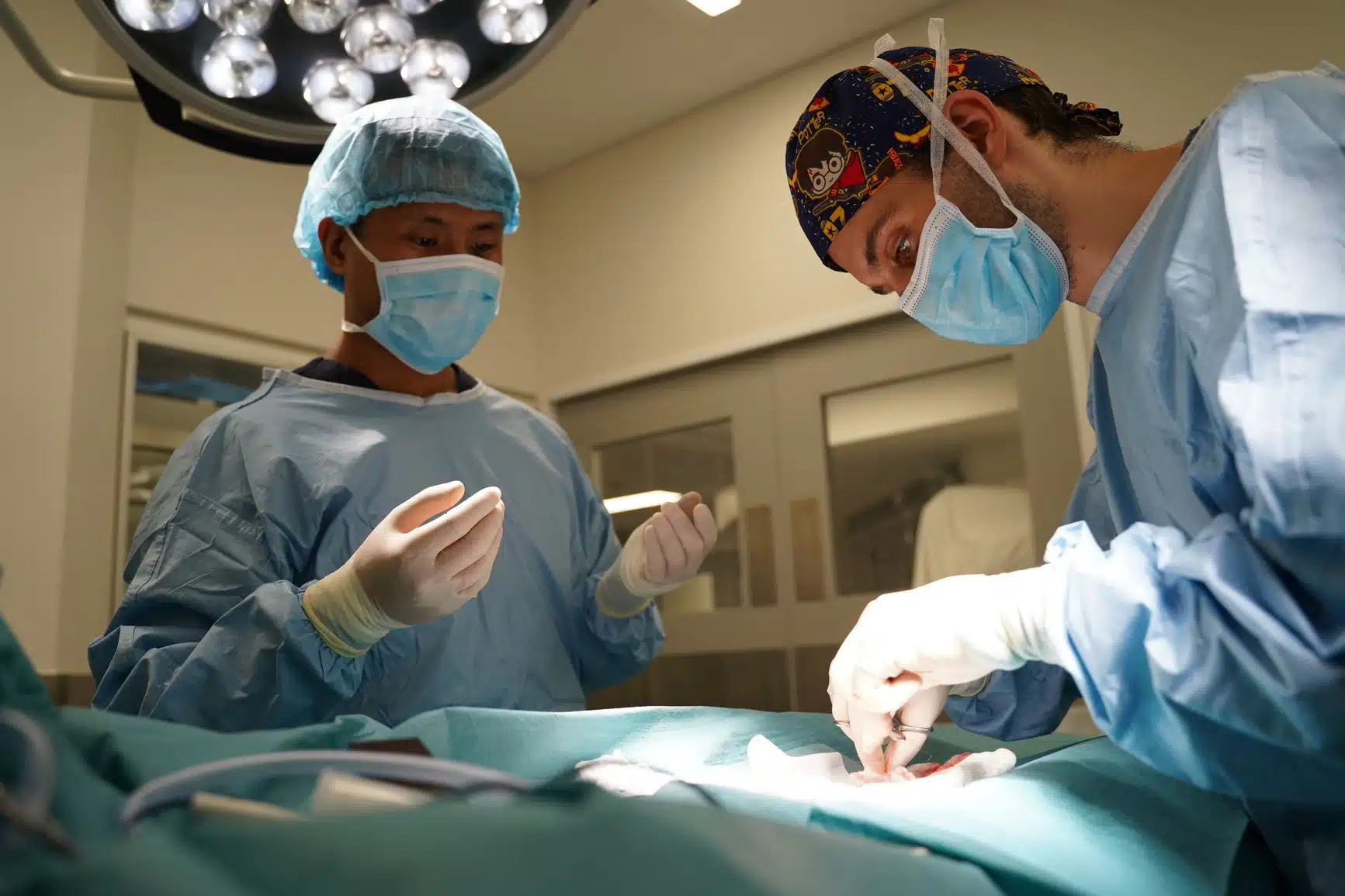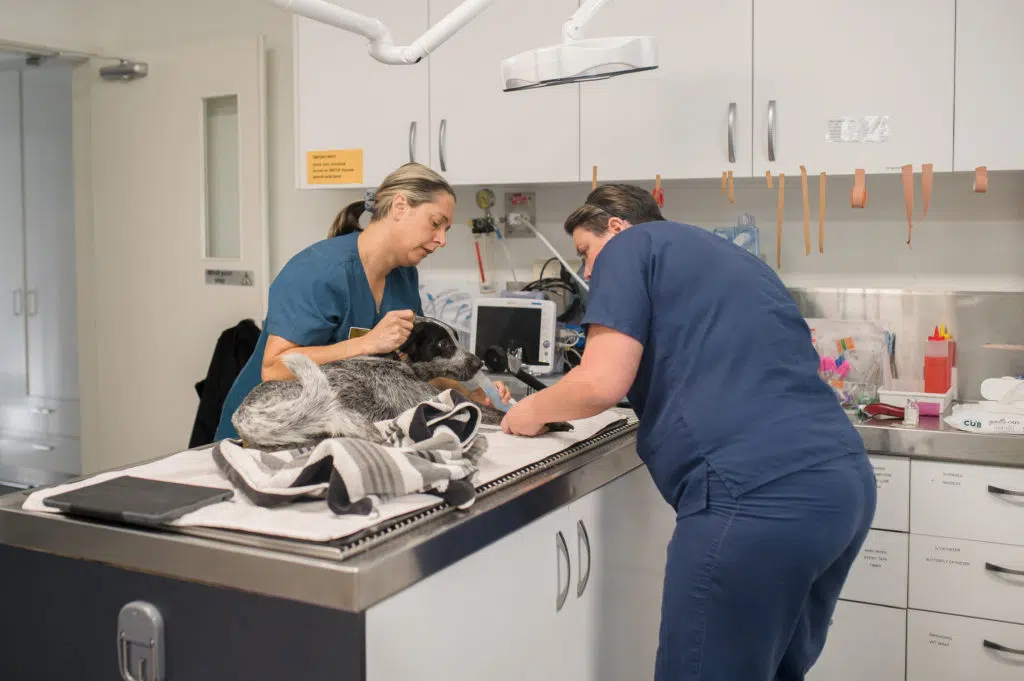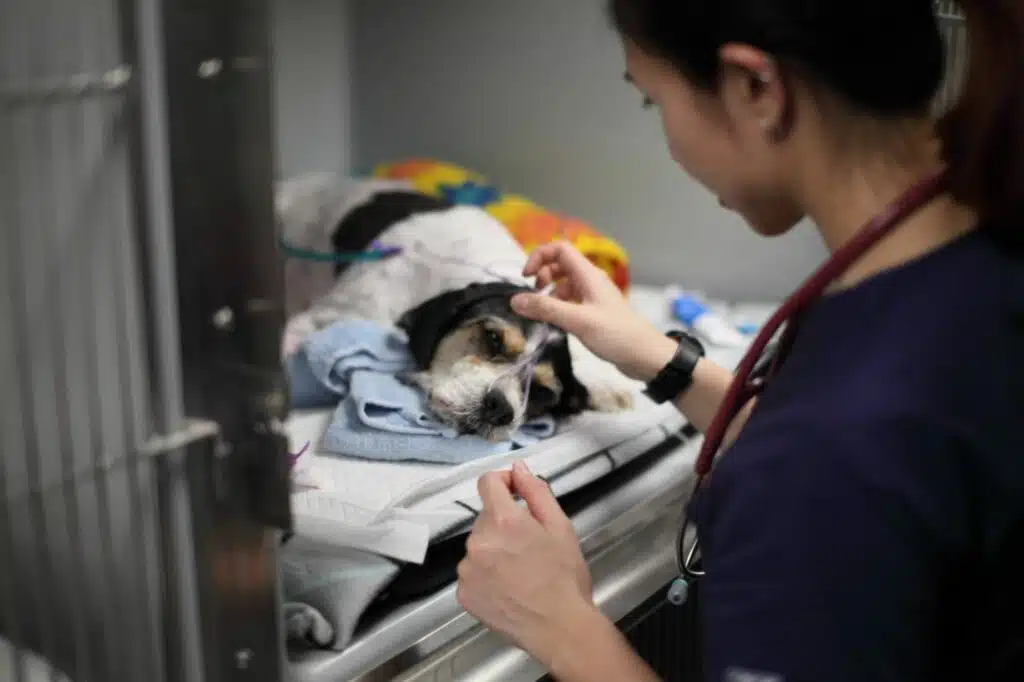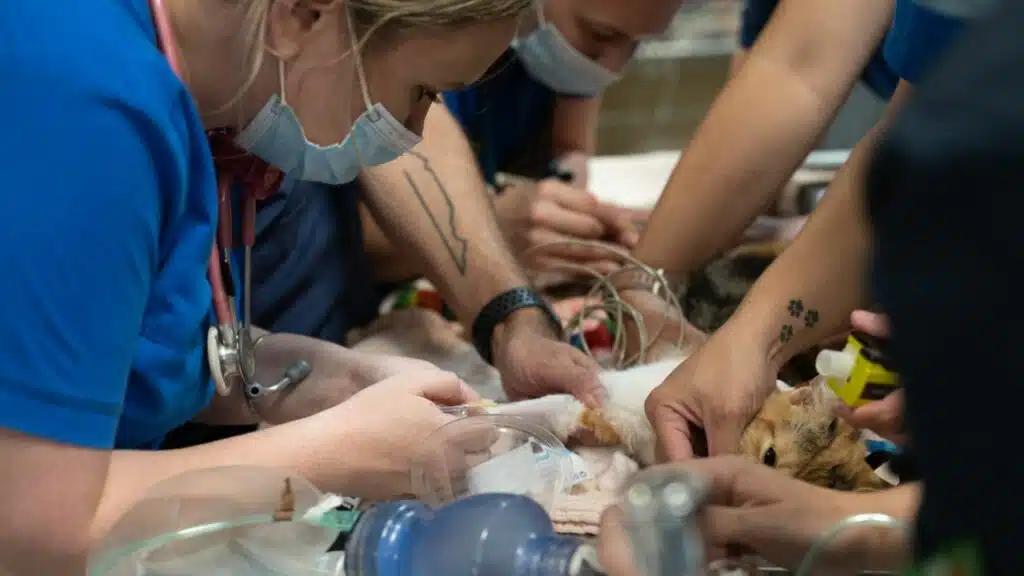Veterinary science is a diverse and dynamic field with a variety of veterinary careers available for those passionate and dedicated to working with animals. And they go far beyond the clinic too! As veterinarians, we have opportunities in providing vital healthcare services for companion animals, conducting research, working in public health, or even influencing public policy.
Whether it’s treating a beloved family pet or monitoring the health of a herd of livestock, veterinary professionals play a crucial role in ensuring the well-being of animals and the people who care. Regardless of which of these veterinary careers you choose, all paths in veterinary science are equally important.
In this article, we’ll explore some of the career paths in veterinary science, including clinical and non-clinical roles. We’ll cover key roles such as general practice vet and emergency vet, through to interesting non-clinical careers paths such as government veterinarian, veterinary pathologist, and even more. Understanding the different veterinary careers available can help you if you’re considering this fulfilling profession and guide you towards the area that aligns with your own skills, interests, and goals.
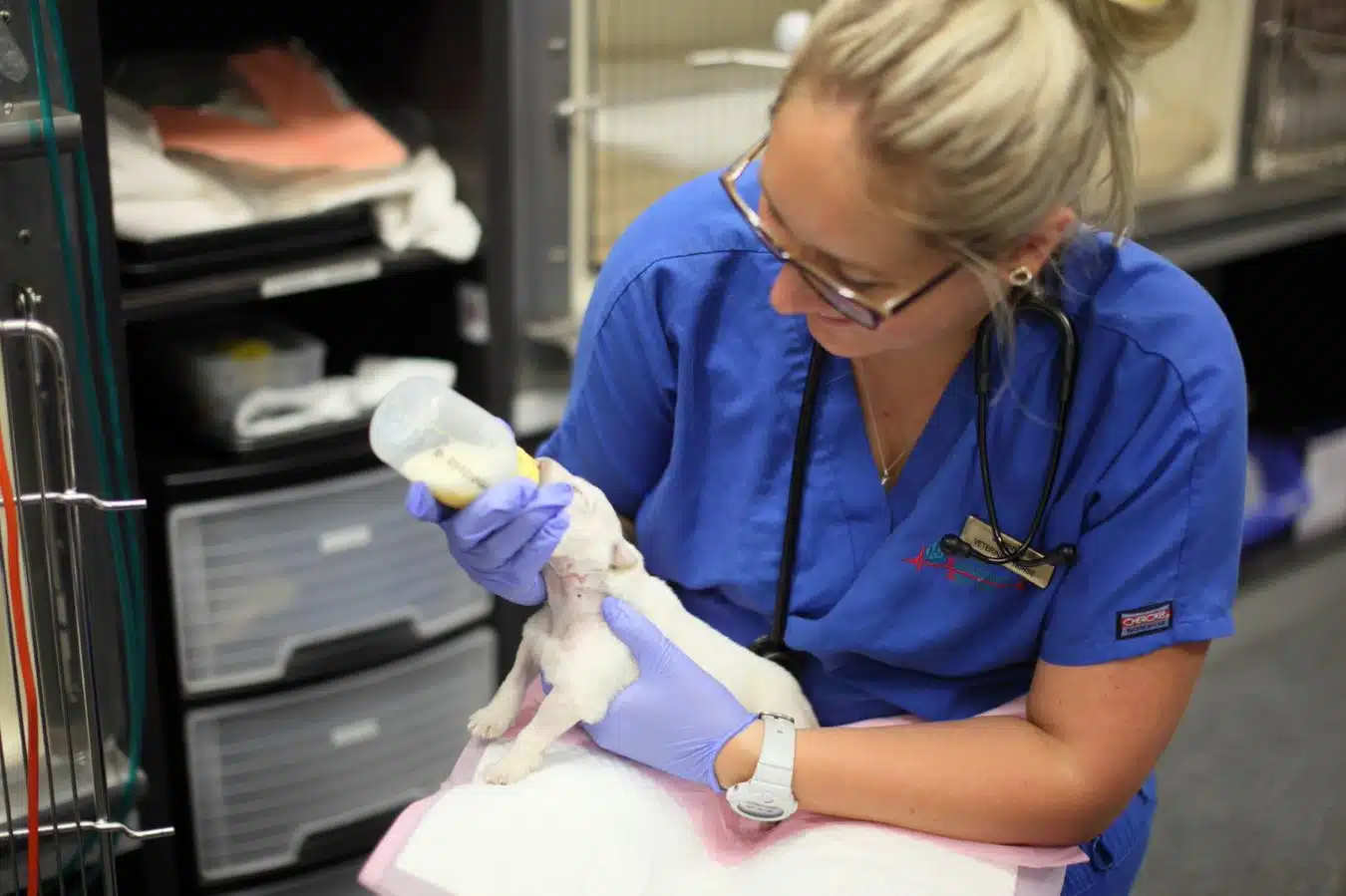
So what are some of the different veterinary careers that make up our profession? We’ll kick things off with the style of veterinary practice that most pet owners, vet students, and the general public picture when you mention “veterinarian”.
Veterinary Careers – General Practice (GP) Vet
What is a General Practice Veterinarian?
General practice vets, also known as small animal vets, are the most common type of veterinarian, often supporting local communities. Working with companion animals, such as dogs, cats, and small mammals, GP vets can work in a variety of settings, including private clinics, animal hospitals, and even animal shelters. Providing a range of services, general practice vets offer preventive care, diagnostics, treatment, surgery, and emergency care. They also work with pet owners to educate them about proper husbandry, care, and nutrition – core aspects of veterinary care.
What are some skills of a General Practice Veterinarian?
Preventive care is a key component of veterinary medicine when it comes to general practice, including wellness exams, vaccinations, parasite prevention, and dental care. During a wellness exam, general practice vets will conduct a physical examination to assess the animal’s overall health and detect any underlying health conditions. This clinical exam is a key component to assessing an animal’s health at regular intervals throughout their life and being able to identify and treat diseases early before they progress.
Vaccinations are crucial for preventing infectious viruses, such as Parvovirus and Distemper in dogs, and Feline Herpesvirus and Feline Immunodeficiency Virus (FIV) in cats. Parasite prevention can also be life-saving, especially in reducing the risk of parasites like the Paralysis Tick and Heartworm. Dental care is essential for maintaining oral health and preventing dental disease, which can have a flow-on effect to other organ systems, including cardiovascular health. Preventative surgeries such as desexing are also commonly performed by general practice vets to manage reproduction and prevent unwanted pregnancies.
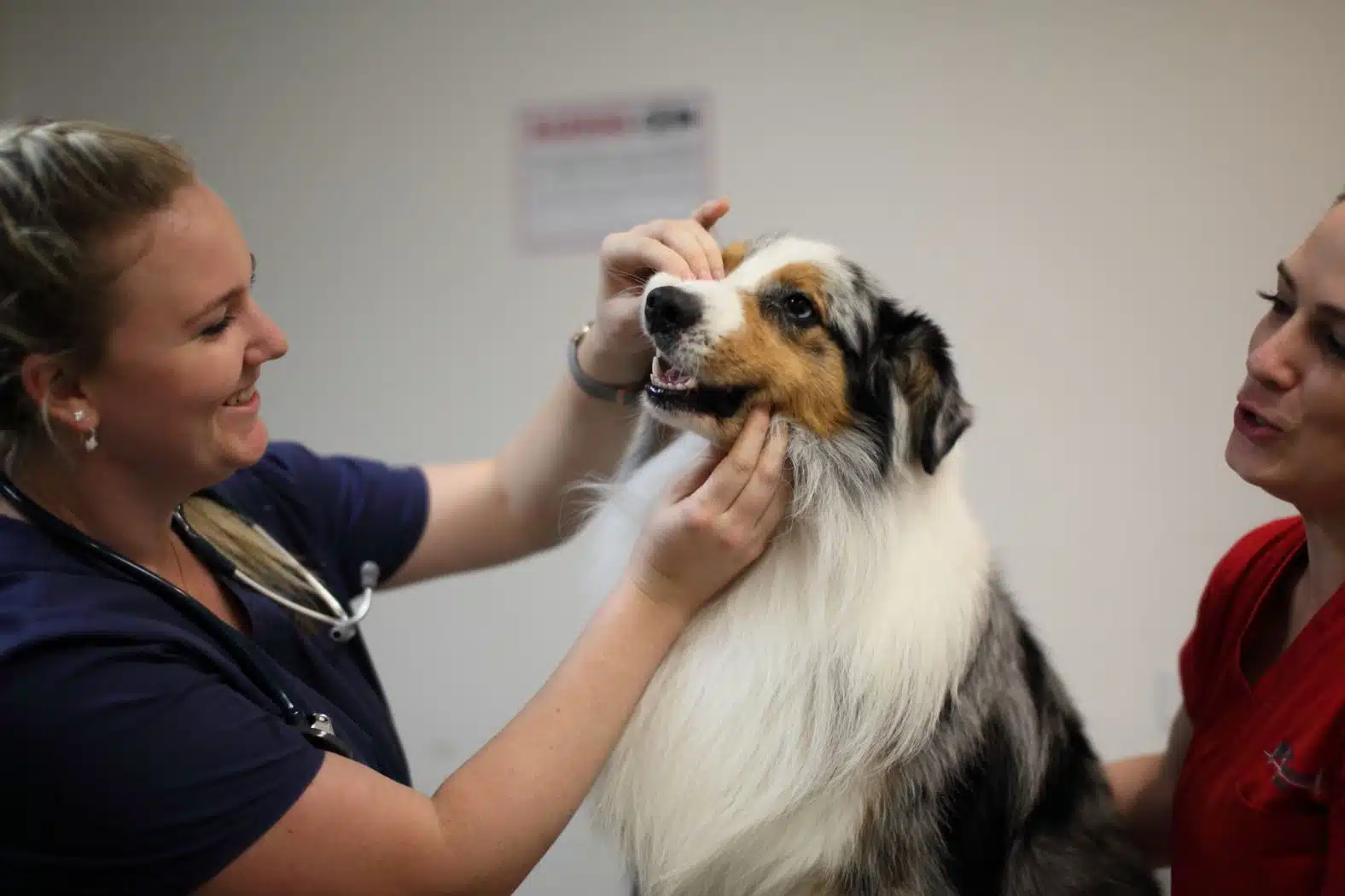
What else does veterinary general practice involve?
But general practice veterinarians aren’t purely about preventative health. When an animal is unwell or injured, general practice vets are responsible for diagnosing and treating the problem, often throughout an animal’s entire lifespan. This involves performing a range of diagnostic tests, such as bloodwork, x-rays, and ultrasound. Once a diagnosis is made, GP vets develop a treatment plan, which may include medication, surgery, or other interventions, and provide an expert resource for pet owners. General practice vets are skilled in multiple areas and may also provide emergency care to animals who have been injured or are experiencing life-threatening conditions.
In addition to providing medical care to animals, general practice vets also work with pet owners to educate them about proper animal care and nutrition. They may advise on diet, exercise, behaviour, and other aspects of animal care. General practice vets also play a vital role in the community by promoting animal welfare, advocating for animal health and safety, and end-of-life care and euthanasia for older pets.
How do I become a General Practice vet?
To become a general practice vet, you need to complete a Bachelor of Veterinary Science (BVSc) or Doctor of Veterinary Medicine (DVM) degree from an accredited university and obtain state registration to practice. Many general practice veterinarians continue their education through specialised CPD training programs or by pursuing memberships in areas such as internal medicine, surgery, or emergency medicine. General practice vets must have excellent communication skills, compassion, and a deep understanding of animal health and welfare. They must also work effectively in a team, including collaborating with veterinary nurses/technicians, fellow colleagues in external clinics, and other support staff.
Veterinary Careers – Emergency and Critical Care Vet
What is an Emergency Veterinarian?
Emergency veterinarians, also known as critical care veterinarians, provide urgent medical care to animals in need of immediate attention. Just like our team here at Animal Emergency Australia! Our emergency veterinarians work in specialised animal hospitals or emergency clinics and are available after hours and on weekends 24/7 to respond to emergencies such as trauma, toxicity, and other life-threatening conditions. Our veterinarians mostly work with companion animals (e.g., dogs and cats), but occasionally treat wildlife and exotic pets like small mammals and birds.
What are some skills of an Emergency Veterinarian?
The work of an emergency vet is fast-paced and unpredictable. They must quickly assess a patient’s condition and take immediate action to stabilize the animal’s vitals. Being able to think on your feet is essential! This may involve administering medication, performing emergency procedures, and providing immediate life support to critical patients. Emergency vets are also skilled in handling critical, life-threatening cases, collaborating effectively with an emergency team, as well as communicating treatment plans with pet owners during high-stress situations.
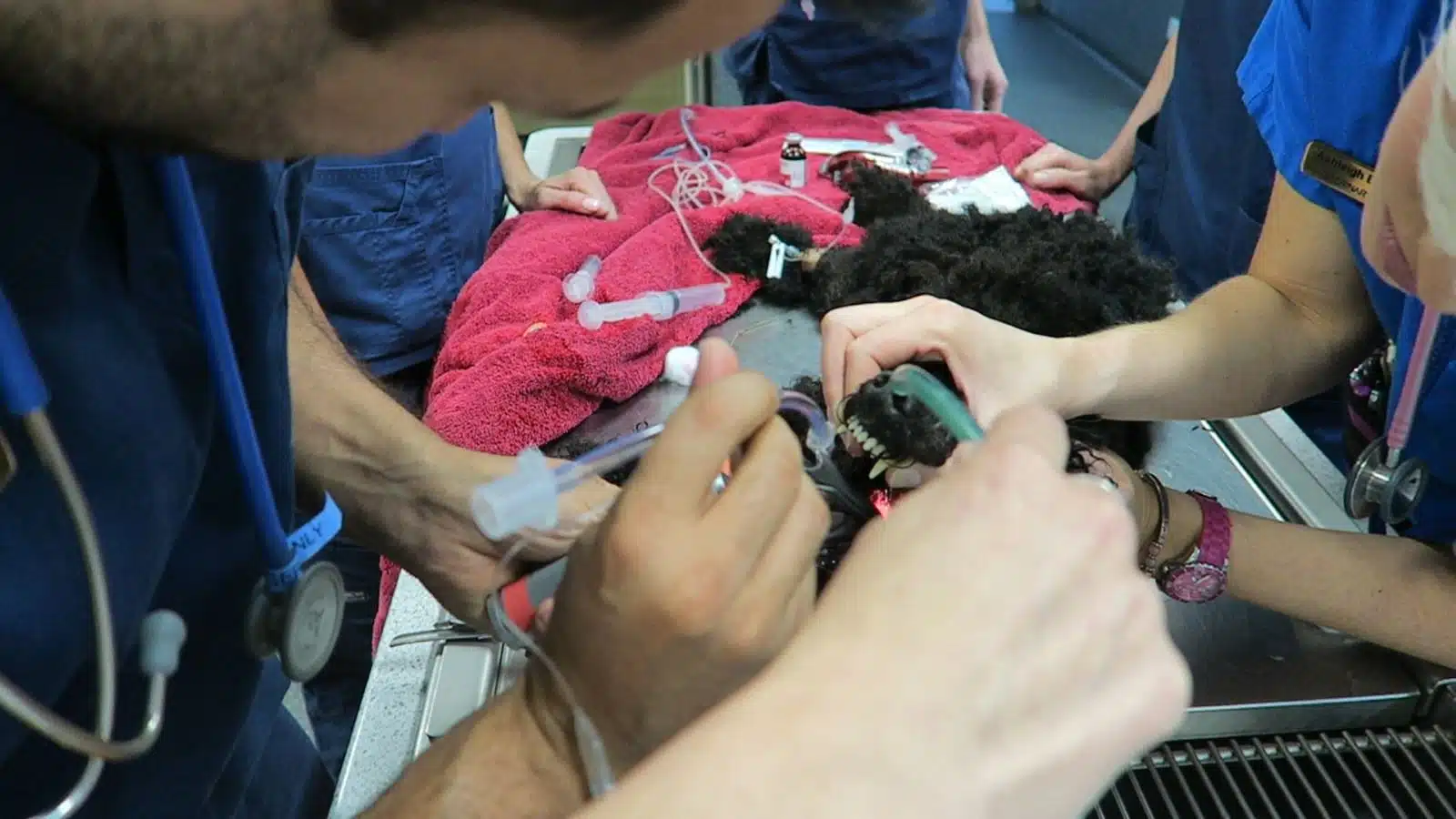
Some of the common conditions that emergency vets may treat include trauma resulting from accidents or injuries, respiratory distress, seizures, GDV, poisoning and toxicity, and in Australia especially treating cases of tick paralysis during the warmer months. Emergency vets are also skilled diagnosticians who make swift and effective use of tools such as ultrasound (especially AFAST ultrasound) and radiography. Depending on the individual clinic, emergency surgery is also part of their skill set, including life-saving procedures such as removing intestinal blockages or derotating twisted stomachs while treating GDV.
Emergency vets must remain calm and focused in high-pressure situations and are capable of working effectively as part of a team. They must have excellent problem-solving skills, as well as advanced knowledge of animal physiology, pharmacology, and medical procedures. Working shift hours, including nights and weekends, can be demanding but allows for extra flexibility outside of work and plenty of time off during the day. Their work can be challenging, but it is also rewarding, and has the opportunity of making a significant impact on the lives of animals and their owners.
How do I become an Emergency Veterinarian?
To become an emergency vet, a BVSc or DVM degree is required, and it’s possible to transition straight into veterinary emergency practice from university. Many emergency vets go on to complete additional training in emergency and critical care medicine, which is obtained through pursuing an emergency internship program. Further study, including undertaking a residency program in emergency and critical care, provides advanced training in this field. This can be followed by becoming a board-certified fellow in the field of Veterinary Emergency Medicine and Critical Care from the Australian and New Zealand College of Veterinary Scientists.
Veterinary Careers – Government Veterinarian
What is a Government Veterinarian?
Government veterinarians, also known as public health veterinarians, work for federal, state, or local government agencies to promote and protect animal and human health. They play a crucial role in safeguarding the nation’s food supply, preventing the spread of infectious diseases, and responding to public health emergencies. Government veterinarians work in a variety of settings, including public health departments, regulatory agencies, research institutions, and international organisations. Some of the areas in which they may work include food safety, zoonotic diseases, wildlife health, and bioterrorism preparedness.
What are some skills of Government Veterinarians?
Government veterinarians must have excellent communication and collaboration skills while working with a variety of stakeholders, including other veterinarians, public health officials, and government regulators. Possessing knowledge of the laws and regulations related to animal health and welfare, and applying this knowledge to protect animal and human health is crucial for a government veterinarian.
Food Safety
In the area of food safety, government veterinarians work to ensure that the nation’s food supply is safe for consumption. Inspecting food processing plants, slaughterhouses, and other food-related facilities ensures that they are complying with federal regulations. They may also work to prevent the spread of foodborne illnesses, such as bacterial contaminants like Salmonella or E. coli, or monitoring notifiable exotic diseases like Bovine Spongiform Encephalopathy (BSE) or Foot-and-mouth Disease (FMD).
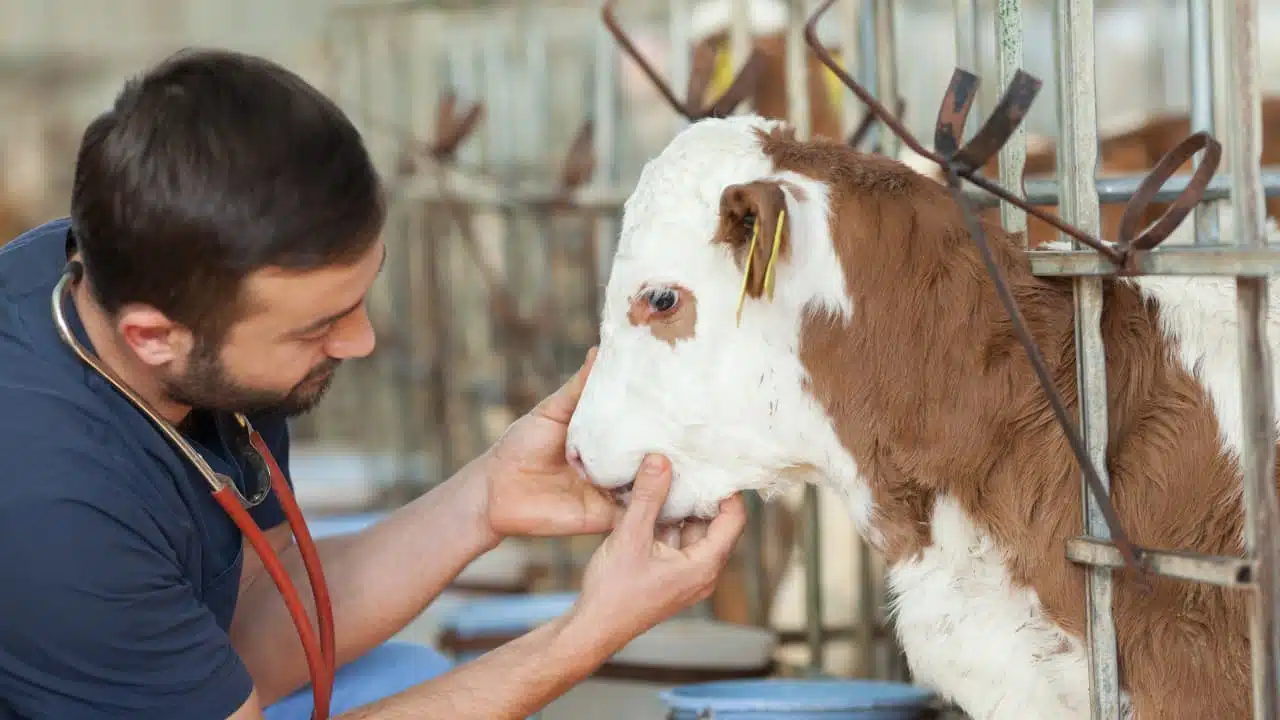
Zoonotic Diseases
In the area of zoonotic diseases, government veterinarians work to prevent the spread of diseases that can be transmitted between animals and humans. Monitoring outbreaks of infectious diseases, such as Hendra Virus or Avian Influenza, can help countries develop strategies to prevent their spread. Government veterinarians also contribute towards quarantine in Australia, ensuring that exotic diseases like Rabies are unable to enter the country. They also play an important part in educating the public and wider veterinary community on disease prevention measures and monitoring.
Wildlife Health
In the area of wildlife health, government veterinarians focus on protecting the health of wildlife populations. This involves conducting disease surveillance programs, monitoring animal populations, and working to prevent the spread of infectious diseases from wild animals to domestic animals or humans. This is also a particularly important role in coordinating veterinary support in response to natural disasters such as floods and bushfires, where wildlife in affected ecosystems require close veterinary attention.
How do I become a Government Veterinarian?
To become a government veterinarian, obtaining a BVSc or DVM degree and meeting the requirements for state registration is the first step. Many government veterinarians also have advanced degrees, such as a Master of Public Health (MPH) or a PhD in a relevant field or veterinary topic. Certification in areas such as veterinary epidemiology, animal welfare science, ethics and law, or even aquatic animal health is also available through the Australian and New Zealand College of Veterinary Scientists.
Veterinary Careers – Veterinary Pathologist
What is a Veterinary Pathologist?
Veterinary pathologists are veterinarians who specialise in the study of disease and its effect on animals, their organs, and tissues. They work in a variety of settings, including diagnostic laboratories, research institutions or universities, and pharmaceutical companies, and play a critical role in the diagnosis, treatment, and prevention of animal diseases.
Working as a veterinary pathologist requires being able to use a combination of techniques to diagnose and analyse animal diseases. This may include examining tissues and organs under a microscope (histopathology), conducting laboratory tests like cultures, and using advanced laboratory techniques like PCR that aren’t readily available for vets working in clinical practice. They may also conduct post-mortem examinations to determine the cause of death in animals.

What are some skills of a Veterinary Pathologist?
Veterinary pathologists must have excellent diagnostic skills, as well as advanced knowledge of animal physiology, microbiology, and pathology. They must also be skilled in laboratory techniques and be able to work effectively as part of a laboratory team and external veterinary community. They may work long hours in laboratory settings, and must be able to handle potentially hazardous materials with care while also working with infectious agents.
Veterinary pathologists may specialise in a particular area of animal health, such as avian pathology, aquatic animal pathology, or neuropathology. They may also work with a specific group of animals, such as companion animals, livestock, or wildlife. Or they may even hone their skills in a particular field of pathology, such as clinical pathology (performing and interpreting complex laboratory tests) or gross pathology (performing necropsies and collecting/analysing samples to determine an underlying disease).
How do I become a veterinary pathologist?
To become a veterinary pathologist, you’ll need to first obtain a Bachelor of Veterinary Science or Doctor of Veterinary Medicine degree and become licensed to practice veterinary medicine. After completing a either program, a veterinary pathologist typically completes a residency in veterinary pathology, which provides advanced training in the field, often working under a specialist veterinary pathologist. Post-graduate certification in veterinary pathology is available through a Veterinary Pathology membership, which can be followed by a separate Veterinary Clinical Pathology or Veterinary Anatomical Pathology fellowship based on your area of interest.
Veterinary Careers – Zoo and Exotic Veterinarian
What is a Zoo and Exotic Veterinarian?
Zoo and exotic veterinarians are focused on the care and treatment of non-domestic animals, including animals in zoos, aquariums, wildlife parks, and private exotic veterinary practices. They play a critical role in the health and well-being of these animals, and their work may involve a wide range of activities, including preventative care, disease diagnosis and treatment, surgery, and emergency care. Many exotic veterinarians must be comfortable treating a wide variety of species, including native birds and exotic parrots, small mammals and marsupials, and even reptiles, amphibians, and aquatic species like turtles and fish.
One of the key responsibilities of a zoo and exotic veterinarian is conducting regular health exams and preventative care for non-domestic animals in their care. This may include administering vaccines, performing routine tests, and developing individualised nutrition and exercise plans. They may also develop protocols for quarantine and biosecurity measures to prevent the spread of disease for animals in captivity.
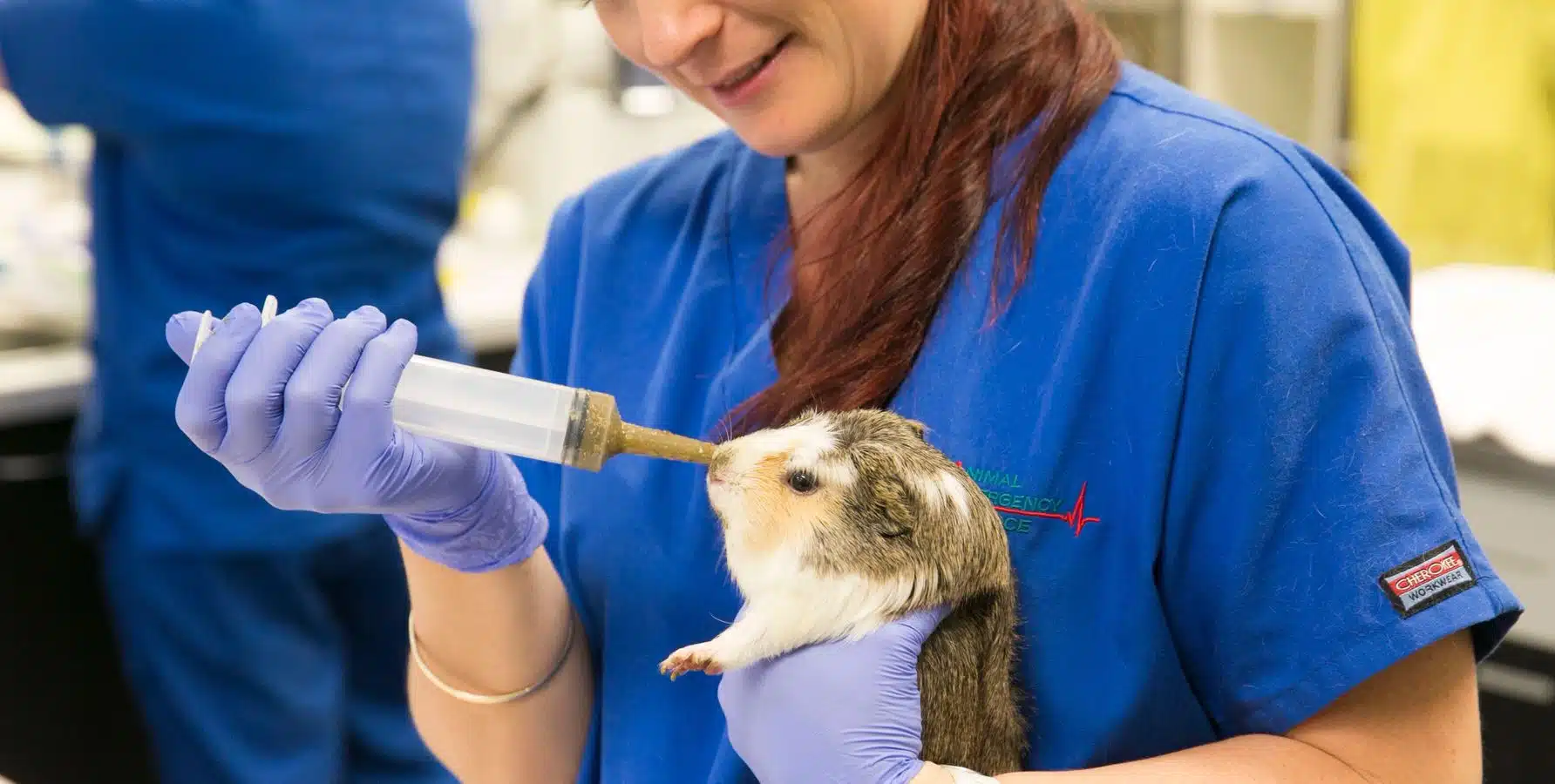
What are some skills of a Zoo and Exotic Veterinarian?
Zoo and exotic veterinarians must possess advanced knowledge and skills in veterinary medicine, as well as a deep understanding of the unique needs and characteristics of numerous species of non-domestic animals. They must also be able to communicate effectively with a wide range of stakeholders, including other veterinary professionals, animal care staff, and the general public.
In the event of illness or injury, zoo and exotic veterinarians use a range of diagnostic tools, including radiography, ultrasound, and blood tests, to determine the nature and extent of the problem. They may also perform surgeries, prescribe medications, and develop treatment plans to help animals recover from illness or injury.
Zoo and exotic veterinarians may also be called upon to respond to emergency situations, such as natural disasters, animal escapes, or infectious disease outbreaks. In these situations, they may work closely with other veterinary professionals and animal care staff to ensure the safety and health of the animals in their care.
How do I become a Zoo and Exotic Veterinarian?
To become a zoo and exotic veterinarian, as with most veterinary careers, a BVSc or DVM degree is required to become licensed to practice veterinary medicine. After graduation, a zoo and exotic veterinarian typically undergoes clinical work with exotic animals, either a wildlife/zoo setting, or as a practicing veterinarian within an exotic animal practice. Further qualifications can be obtained through one of the following memberships that are currently offered:
- Medicine and Surgery of Unusual Pets
- Avian Medicine and Surgery
- Medicine of Australasian Wildlife Species
- Medicine of Zoo Animals
Completing a residency provides advanced training in the care and treatment of non-domestic animals. Exotic veterinarians particularly interested in the treatment of avian species may consider pursuing a fellowship in Avian Medicine and Surgery in order to become a board-certified specialist in this field.
Veterinary Careers – Specialist Veterinarian
What is a Specialist Veterinarian?
Specialist veterinarians are professionals who have completed advanced training and obtained a fellowship in a specific area of veterinary medicine, which encompass a wide variety of specialties. These can include cardiology, oncology, surgery, dermatology, ophthalmology, or dentistry, among many others. They are recognized by veterinary medical organizations as experts in their field and play a critical role in the diagnosis, treatment, and management of complex or difficult animal health conditions.
These highly-skilled veterinarians work in a variety of settings, including private practices, referral centres, veterinary hospitals, as well as research and educational institutions. Some of the above veterinary careers we’ve already discussed can be classified as specialist veterinarians, depending on the level of qualification obtained.
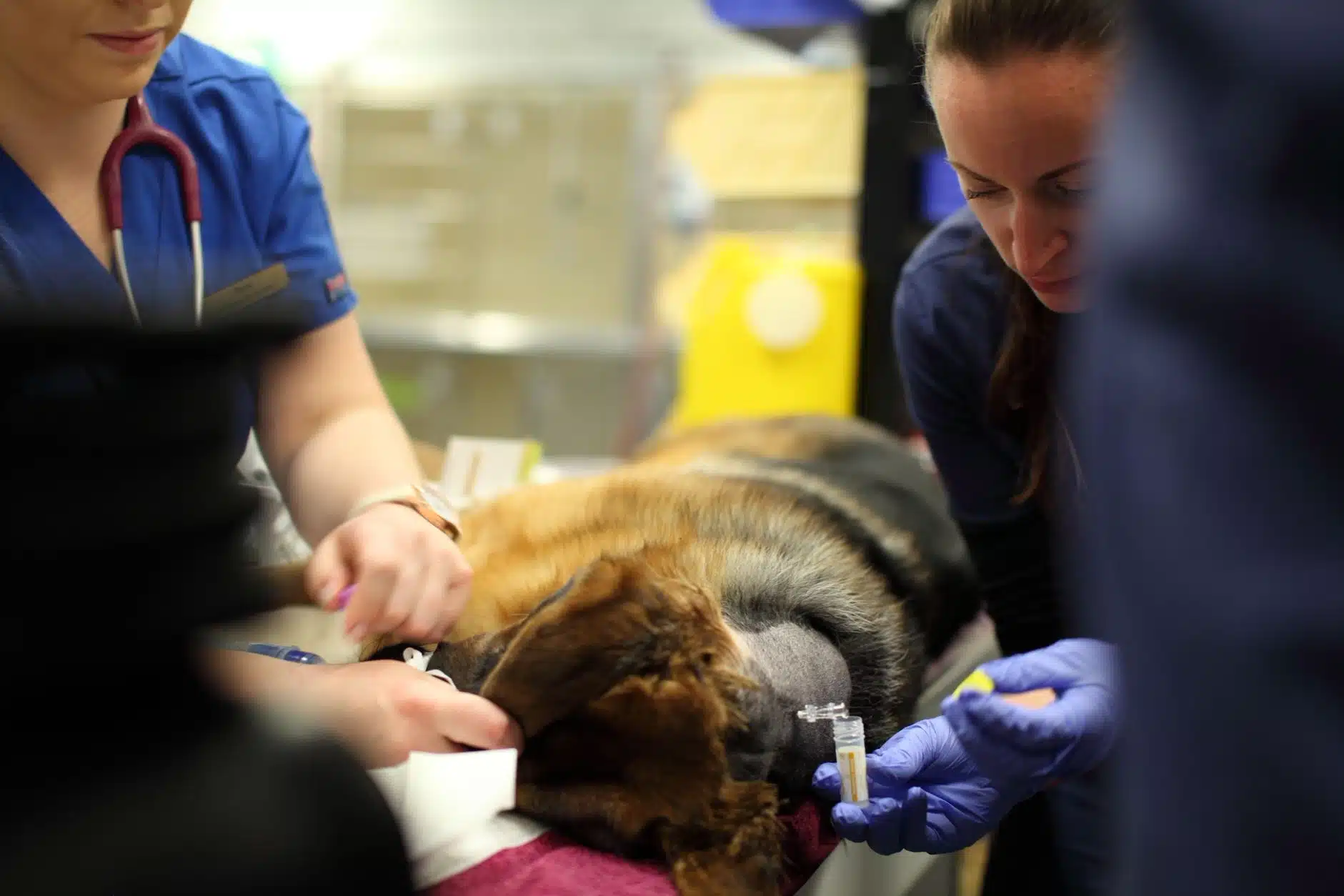
What are some skills of a Specialist Veterinarian?
Successful specialist veterinarians must possess advanced knowledge and skills in their area of specialty, as well as strong communication and interpersonal skills. They must be able to work collaboratively with other veterinary professionals and communicate effectively with pet owners to explain complex medical issues and discuss available treatment options. Regardless of their specialty, all specialist veterinarians provide a high level of expertise and care to their patients.
For example, a specialist surgeon may perform challenging procedures that otherwise not be possible in general practice, specialists in small animal medicine diagnose and treat complex and interacting medical conditions, veterinary oncologists manage and treat cancer in animals. There can even be system-specific specialists, similar to human medicine. Veterinary cardiologists diagnose and treat heart disease in animals, veterinary dermatologists are dedicated to the treatment of skin conditions, and veterinary ophthalmologists are focused entirely on ocular issues.
In addition to their clinical work, specialist veterinarians may also be involved in research and teaching. They may conduct clinical trials to develop new treatments or procedures, or they may teach and mentor students in their specialty area. Many specialist veterinarians also participate in continuing education to stay up-to-date with the latest advances in their field.
How do I become a Specialist Veterinarian?
To become a specialist veterinarian, you’ll need to first obtain a Bachelor of Veterinary Science or Doctor of Veterinary Medicine. Once you’ve had at least 3 and a half years of clinical experience post-graduation, you’ll then be eligible to sit a membership examination. During this time you may complete a residency program in your chosen specialty, which typically lasts for 3-4 years. Residency programs provide advanced training and clinical experience in their specialty area. After completing a membership and meeting eligibility criteria specified in the Fellowship Candidate Handbook, you must then pass an additional fellowship examination in your specialty area to become board-certified.
Veterinary Careers – Non-Clinical Veterinarian
What is a Non-Clinical Veterinarian?
Non-clinical veterinarians are professionals who work in areas of veterinary medicine that do not involve direct clinical care of animals. In fact, we’ve already mentioned a couple in this article, including Veterinary Pathologists and Government Veterinarians. Rather than working directly in traditional veterinary clinics, non-clinical vets contribute to areas such as research, education, industry, and pharmaceutical development among other areas.
Non-clinical veterinarians play a vital role in the prevention of animal diseases or develop new treatments, vaccines, or diagnostic tools. They may also work in pharmaceutical or biotech companies, developing new drugs and therapies in order to advance both animal and human health. In addition to conducting research, non-clinical veterinarians in research may also work closely with universities to manage research programs, develop research protocols, and oversee the care and use of laboratory animals.

What are some skills of a Non-Clinical Veterinarian?
Non-clinical veterinarians working in education need excellent teaching and communication skills. Being involved in training requires the ability to convey complex information in a clear manner that is easy to understand so that students may learn effectively. They may teach veterinary students, veterinary technicians, or other animal health professionals in academic settings, such as veterinary schools or universities. Developing and delivering continuing education programs for practicing veterinarians and other animal health professionals means they require great attention to detail and skills in long-term planning.
Industry is another area in which non-clinical veterinarians may work, including areas such as animal nutrition, animal welfare, or quality control. Other industry roles may involve supporting large veterinary companies in sales, marketing, or technical support for companies that manufacture animal products or services. Pet Insurance is also another growing industry area where many non-clinical vets may find employment, which involves assessing technical claims and communicating with owners and treating veterinarians. Any industry roles require advanced communication skills due to interactions required with a wide variety of parties, including veterinary staff, large corporate entities, and even customers requiring assistance.
How do I become a Non-Clinical Veterinarian?
All non-clinical veterinarians must first complete a veterinary degree and obtain state registration to practice veterinary medicine. Many non-clinical veterinarians begin their careers in general practice to gain in-depth knowledge of operations of the industry and establishing advanced communication skills with both clients and veterinary professionals. Additional training or education may be required depending on the specific area of non-clinical work, though many roles demand transferable skills that can be learned while in a clinical role.
For example, a non-clinical veterinarian working in pet insurance may develop practical skills thanks to a wide exposure to a range of cases and histories. Where non-clinical veterinarians working in industry such as education or pharmaceuticals will obtain valuable experience through teaching and learning from other veterinarians in a clinical setting. Post-graduate qualifications in business such as a Master of Business Administration (MBA) or Diploma in Veterinary Professional Leadership and Management can provide advanced skills for veterinarians wanting to pursue non-clinical roles.
Conclusion
There are a wide variety of career paths available within the veterinary industry, and we’ve discussed only a few! From general practice and emergency veterinarians who provide direct care to animals, to specialist veterinarians who focus on a specific area of veterinary medicine, to non-clinical veterinarians, there is no shortage of opportunities for those interested in pursuing a career in veterinary science.
Each role requires a unique set of skills and expertise, but all veterinary professionals are united in our dedication to improving the health and welfare of animals. Whether you have a passion for animal care, a desire to advance veterinary medicine through research, or an interest in public health or industry, a career in veterinary science can be highly rewarding and fulfilling. To find out about what careers are available, start exploring Veterinary Careers at Animal Emergency Australia and you may discover your next role!

